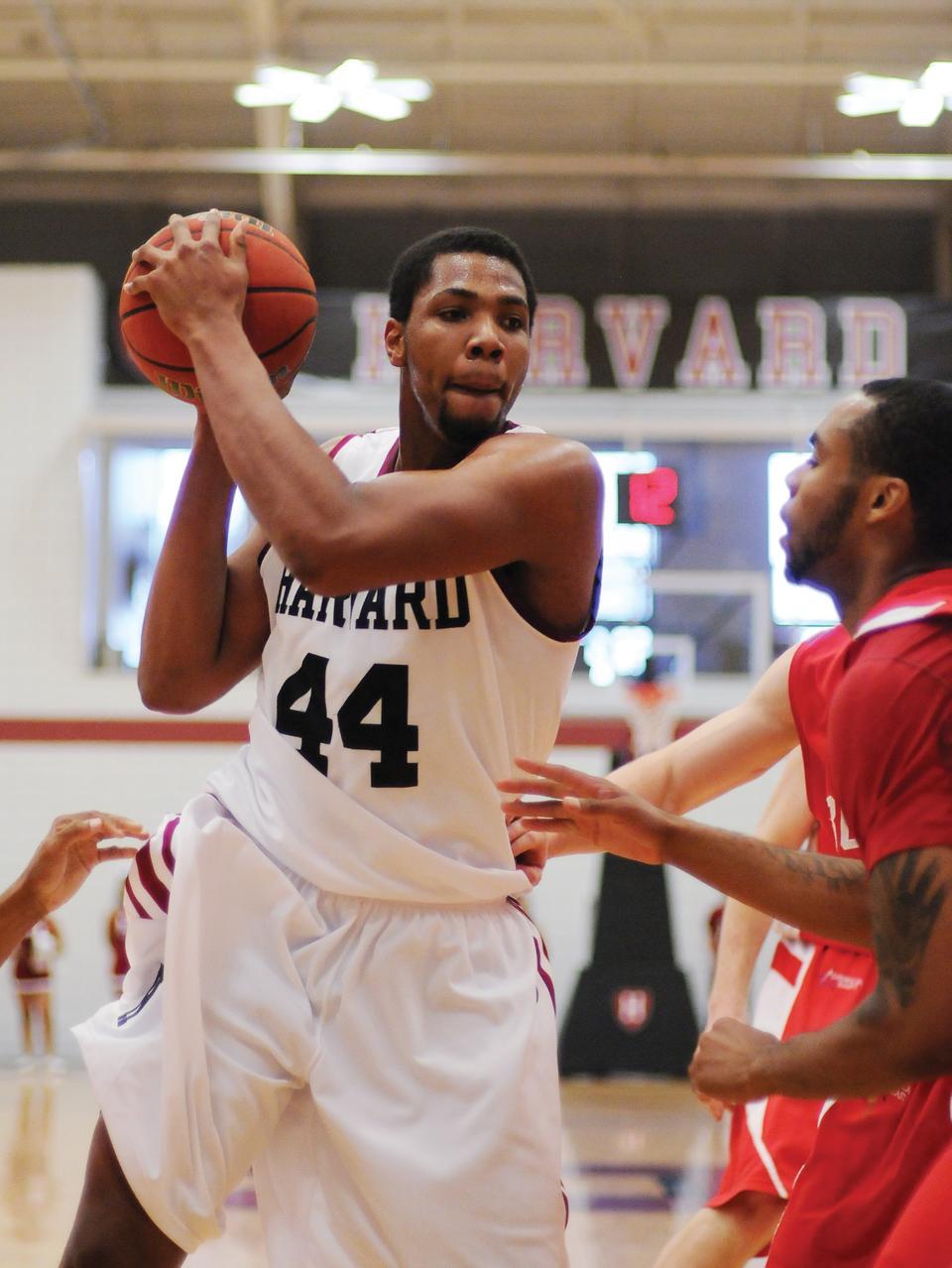
News
HMS Is Facing a Deficit. Under Trump, Some Fear It May Get Worse.

News
Cambridge Police Respond to Three Armed Robberies Over Holiday Weekend

News
What’s Next for Harvard’s Legacy of Slavery Initiative?

News
MassDOT Adds Unpopular Train Layover to Allston I-90 Project in Sudden Reversal

News
Denied Winter Campus Housing, International Students Scramble to Find Alternative Options
MALE BREAKOUT PLAYER OF THE YEAR: Wright Steps Up His Game to Take Highest Ivy Honor

Keith Wright had been a very solid contributor for the 2009-10 Harvard men’s basketball team.
As a sophomore, the center averaged a respectable 8.9 points and 4.6 rebounds in 21 minutes a game, despite being largely overshadowed on the squad’s roster by senior Jeremy Lin ’10 and freshman Kyle Casey, who won the Ivy League’s Rookie of the Year.
But in 2010-2011, with Lin graduating and Casey dealing with a foot injury, Wright developed a reliable short jumper, improved his post moves, and became a star.
Before the season, the junior was named the team’s co-captain, and with that distinction came the added responsibility of being a leader during both games and practices—a message Wright took to heart.
“Something that I look back at and I’m really proud of was that practices were at a different level this year,” Wright said. “Coach [Tommy] Amaker told me once that he wanted me to be a better practice player, and that would end up translating on the court.”
The impact that extra effort had on Wright’s game was immediately evident. Playing without Casey early in the year, and with little talent surrounding him in the frontcourt, Wright picked up the slack both in the paint and on the boards.
He began his season with 22 points and a career-high 16 rebounds against future top-25 team George Mason, setting a tone early on that he would be Lin’s replacement as the Crimson’s go-to guy.
The success would continue to come with Casey out, as Wright recorded 18 points and six boards in Harvard’s second game of the season—a victory over Holy Cross—and then followed that up two games later with 24 and 10 in a win over Bryant.
In Harvard’s subsequent contest, Wright recorded 19 points, nine rebounds, and six assists in a win, dominating in front of the 15 NBA scouts on hand to watch Colorado guards Alec Burks and Cory Higgins. For that performance, Wright took home his second Ivy League Player of the Week Award.
“Keith worked really hard on his body, on his conditioning,” said fellow junior co-captain Oliver McNally. “I think that’s where it started...that carried over onto the basketball court. Our offense runs through him; when he plays well, we play well.”
The center continued his strong non-conference play as the season went on, recording double-doubles against future NCAA Tournament teams Michigan (18 points and 10 rebounds) and Boston University (17 and 10), and scored 18 with seven boards against the big frontcourt of future national champion UConn.
During Ancient Eight play, Wright continued to excel, pacing the Crimson with 15.4 points, 8.9 rebounds, and 2.1 blocks per game while leading the squad to a share of its first-ever Ivy League title.
The center scored in double-digits in every Ivy contest—highlighted by a career-high 25 points in a double-overtime victory over Penn—and recorded double-doubles against Brown twice, Cornell twice, Dartmouth, Princeton, and Columbia.
At the end of the year, Wright had been the best player on the best Harvard basketball team in the program’s hundred-year history. He finished third in the Ancient Eight in scoring with 14.8 points and second in rebounding and blocks with 8.3 and 1.8, respectively.
Wright also ranked 15th in the country with a 58.4 percent shooting percentage while starting all 30 games after missing time due to illness and injury his first two seasons.
“My first goal was just to make it through the season healthy and just help the team the best way I could,” Wright said.
The awards began to pour in: Ivy League Player of the Year and unanimous first-team All-Ivy. AP All-America Honorable Mention. Lou Henson All-American team. NABC All-District First Team.
“I’m very blessed to have received the accolades that I have,” Wright said. “It’s all because of my teammates. We’re all in it together. I feel like every award I won we won as a team; I wouldn’t be anything without those guys.”
It was those teammates, along with his coach, who named Wright the squad’s Raymond Lavietes Most Valuable Player, Hamilton Fish Most Improved Player, and team-captain once again for the 2011-2012 season.
And perhaps most importantly, throughout his breakout season, Wright genuinely enjoyed playing the sport he loves.
“Just being able to spend time with my teammates, practicing, hanging out, and enjoying their company was really the high point in my season,” Wright says. “This year has been the most fun I’ve ever had playing basketball.”
—Staff writer Scott A. Sherman can be reached at ssherman13@college.harvard.edu.
Want to keep up with breaking news? Subscribe to our email newsletter.
